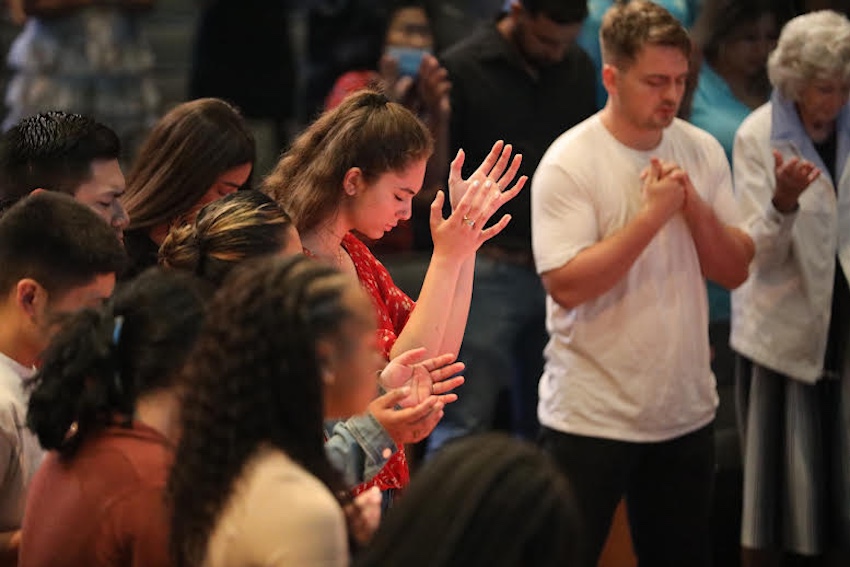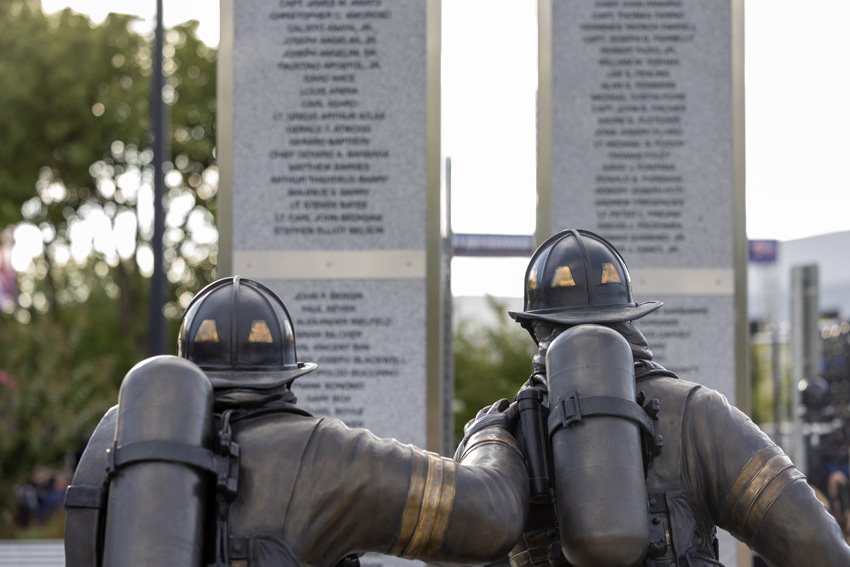Sweat trickled down his neck; the judges’ eyes seemed to pierce right through his body. His voice shook. What was the first line?
While speeches and scantron tests may come easily to some, others find the pressure unbearable. However, the stress from the Academic Decathlon competition is simply one aspect of the annual contest’s atmosphere.
“Everyone is really competitive, so the atmosphere can be kind of tense,” Anne Hierholzer, ’05, said. “But most of the other students are pretty friendly because they are really nervous too.”
Founded in 1981 by Dr. Robert Peterson, the Superintendent of Schools for Orange County, California, Academic Decathlon strives to encourage students to broaden their academic horizons.
Peterson’s organization has expanded into a nationwide competition that provides an opportunity for students to study material that is more in-depth than most schools’ regular curricula.
“I love that in Decathlon we get to study things like music and art history,” Hierholzer said. “Normally we don’t get a chance to study these subjects, and I love learning about them. Since I’m not an athlete, this is like my sport.”
Participating students are given 10 subjects to study over the course of six months, hence the term “decathlon.” Subjects include studies of art, music, a super quiz theme, social science, literature, economics, speech, interview, on-the-spot essay and mathematics.
“This year I think the language and literature section will be the easiest for me to comprehend because English is my strongest subject,” Peter Ocheltree, ’07, said. “However, I think the super quiz section on astronomy will be the hardest because it is the special section and the heavens are very confusing.”
The material may be challenging, but most students study together in the classroom; three others tackle the material independently.
“I am doing Acadec through independent study, so I spend up to seven hours or more per week studying and reviewing the material,” Ocheltree said. “I think that it is harder to do independent study because I have to find time to study among all my other activities. It takes up a lot of time.”
Participants may spend much of their time studying for the competition, but the main concern seems to be more on what students learn rather than awards they may garner.
“Neither the school nor I focus on winning our division,” Molly Sargent, Academic Decathlon adviser, said. “It never has been a goal just to win. We are much more concerned about the students’ effort and expanding their knowledge base than winning a trophy.”
While the overall goal may be for academic expansion, winning Division II medals does reward hard work and effort.
“I think our team has a good chance at winning our division this year,” Sargent said. “Because we are in Division II, we are placed with other schools that are relatively the same in ability as ours, which will make the event more competitive.”
With the addition of a new division, schools have now been grouped according to not only scores, but also by competition level.
“This year we are in Division II because the Fresno County Office of Education added another division,” Sargent said. “They added on to the program because only the top four or five schools in Division I consistently score high enough for the statewide competition. The other three or four in that division just languished because their programs do not post the same high numbers. Because of this chasm in scores, these programs had little chance of winning, which is discouraging.”
Division placement seems to greatly influence a team’s chances of scoring higher on the awards map.
“The years our school has won and lost depended primarily on the division we were in,” Sargent said. “In Division I we competed with the top schools in the county. In Division II we will compete against schools that want to perform well but do not necessarily have the goal of going to the state competition. Every year is successful, though, because the kids do their best in studying. It is just that some years we aren’t recognized publicly.”
The Academic Decathlon team will be traveling to Los Angeles to visit the Getty Museum and the Los Angeles County Museum of Art from Dec. 4-6.
For more information on the Academic Decathlon, go online to www.usad.org or call Sargent at 299-1695, ext. 150.






